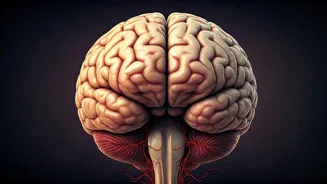Memory: A Complex Process
Memory is a multifaceted cognitive function crucial to daily life, acting as the foundation for our experiences, knowledge, and ability to function independently.
Various brain regions, including the hippocampus, amygdala, and prefrontal cortex, cooperate intricately to encode, store, and retrieve information. The process can be affected by numerous factors, including age, lifestyle choices, and overall health. With age, some memory changes are typical, such as occasional difficulty recalling names or finding the right words. However, substantial memory decline, particularly affecting recent events, may indicate a more serious condition. Maintaining a healthy lifestyle, including a balanced diet, regular exercise, and sufficient sleep, can significantly support cognitive health and protect against age-related memory decline. Also, a mindful approach to memory, including techniques like mnemonic devices, can provide some help.
Normal Ageing's Forgetfulness
Ageing often brings subtle memory changes that are typically benign and don't significantly impact daily activities. These normal memory lapses can include momentarily forgetting where you put your keys, difficulty remembering names, or taking a bit longer to recall specific details. This kind of forgetfulness is often related to the brain's natural slowing down process. It can sometimes be exacerbated by factors like stress, lack of sleep, or distractions. These memory quirks are usually temporary, with information easily retrieved later. Such normal age-related forgetfulness differs significantly from the more severe and persistent memory problems associated with conditions such as dementia. Recognizing these normal changes helps prevent unnecessary anxiety and differentiates them from signs warranting medical attention. Also, strategies like improving sleep quality and using memory aids can make this kind of memory lapses less frequent.
Early Dementia Warning Signs
Identifying early signs of dementia is crucial for early intervention and improving the quality of life. Unlike normal age-related memory loss, dementia often shows up in more profound ways. Key indicators include difficulty in retaining newly learned information, repeatedly asking the same questions, or struggling to follow instructions. Other potential signs include challenges in planning or solving problems, trouble completing familiar tasks, and disorientation regarding time or place. Changes in mood, personality, and behavior are also prevalent. Individuals with dementia may experience confusion, depression, or increased anxiety. Recognizing these signs is important. If these symptoms persist and start affecting daily activities, such as driving, managing finances, or performing household chores, it is essential to seek medical evaluation. Consulting a healthcare provider is essential to get a diagnosis and plan for care.
Dementia vs. Forgetfulness
Distinguishing between forgetfulness and dementia is key to appropriate management and care. While occasional memory lapses are common with normal ageing, dementia is characterized by more severe and persistent memory loss that progressively worsens over time. This can significantly disrupt daily life. The nature of the memory problems also differs. With normal age-related forgetfulness, individuals can usually recall the information with a little prompting. In dementia, the memory loss is more significant and challenging to recover. Additional cognitive impairments, like difficulties with language, problem-solving, and judgment, often accompany dementia. The impact on daily life is more pronounced, including challenges with personal care, social interactions, and managing finances. The assessment must involve medical professionals who will carry out evaluations, including cognitive tests and brain imaging. This will also help in differentiating between mild cognitive impairment (MCI) and dementia, and in developing the best strategies.
Risk Factors to Note
Several factors may increase a person's risk of developing dementia. Age is a major risk factor, with the likelihood of dementia increasing significantly after the age of 65. Lifestyle also plays an important role. Other factors like genetics and family history also increase a person's chances. Health conditions like heart disease, stroke, diabetes, and high blood pressure are linked to an increased risk. Likewise, mental health conditions, such as depression and anxiety, may also be associated with the development of dementia. Additionally, lifestyle choices, including poor diet, lack of exercise, smoking, and excessive alcohol consumption, can increase the risk. Understanding these risk factors is important for prevention and helps people take steps to maintain overall health. Making changes in your lifestyle and other relevant health practices is crucial to reducing the risk of cognitive decline.
Seeking Medical Advice
Consulting a healthcare professional is a crucial step when dealing with memory concerns. If you or someone you know is experiencing persistent memory problems, especially if it interferes with daily functioning, it's essential to seek a professional assessment. Your primary care physician can provide an initial evaluation, which may include a review of your medical history, a physical examination, and cognitive tests. These tests assess different areas of cognitive function like memory, language, and problem-solving abilities. Depending on the results, your doctor may refer you to a specialist, like a neurologist or geriatrician, for further evaluation. This in-depth evaluation may involve additional tests, such as brain imaging (MRI or CT scans) and blood tests. Early detection is vital because it can lead to early interventions, like medication or therapies, and provide more care. It also allows the person and family to prepare for the future with more information.
Lifestyle and Prevention
Adopting a brain-healthy lifestyle can help reduce the risk of cognitive decline and support overall brain health. Regular physical exercise is important. Activities that increase blood flow to the brain and promote the growth of new brain cells, like brisk walking or swimming, are recommended. A balanced diet rich in fruits, vegetables, whole grains, and lean proteins can provide essential nutrients for brain function. Engaging in mentally stimulating activities, such as puzzles, reading, and learning new skills, keeps the brain active and sharp. Managing stress through techniques like meditation, yoga, or spending time in nature is helpful. Getting enough sleep is important, as it allows the brain to consolidate memories and recover from daily activities. Social interaction is also helpful for the brain. Participating in social activities and maintaining strong relationships reduces social isolation and keeps you connected to your community.
















